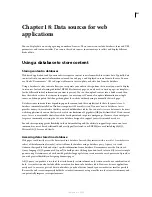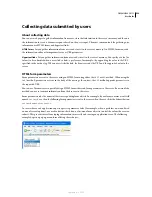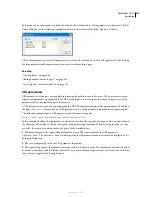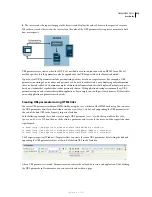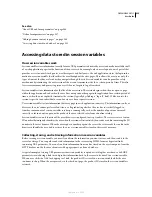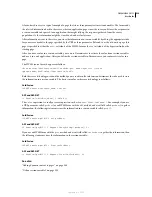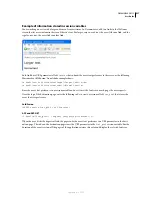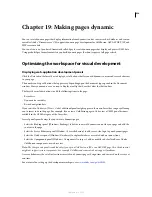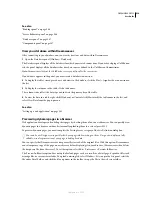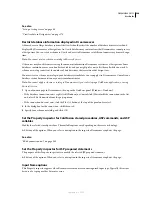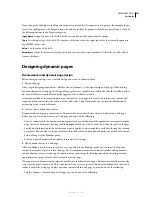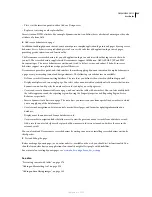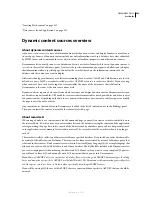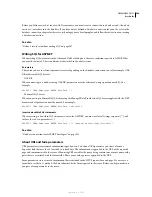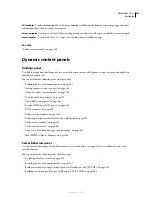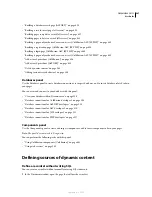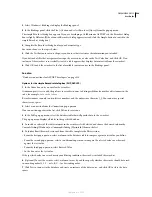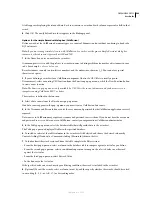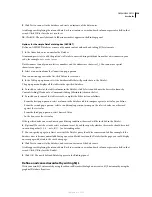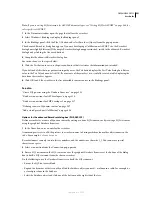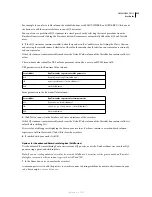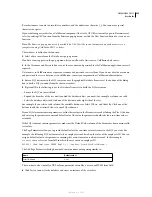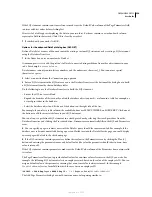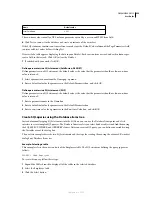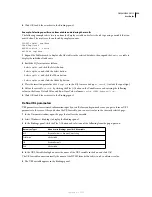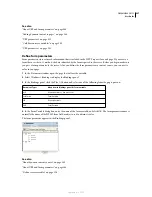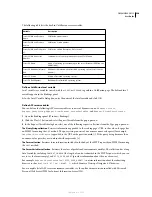
DREAMWEAVER CS3
User Guide
545
See also
“URL parameters” on page 533
“Define form parameters” on page 557
About session variables
Session variables let you store and display information maintained for the duration of a user’s visit (or session). The
server creates a different session object for each user and maintains it for a set period of time or until the object is
explicitly terminated.
Because session variables last throughout the user’s session and persist when the user moves from page to page
within the website, they’re ideal for storing user preferences. Session variables can also be used for inserting a value
in the page’s HTML code, assigning a value to a local variable, or providing a value to evaluate a conditional
expression.
Before defining session variables for a page, you must create them in the source code. After you create a session
variable in the web application’s source code, you can use Dreamweaver to retrieve its value and use it in a web page.
See also
“Define session variables” on page 558
ASP and ColdFusion application variables
In ASP and ColdFusion, you can use application variables to store and display information that is maintained for the
lifetime of the application and persists from user to user. The application’s lifetime lasts from the time the first user
requests a page in the application to the time the web server is stopped. (An application is defined as all the files in
a virtual directory and its subdirectories.)
Because application variables last for the lifetime of the application, and persist from user to user, they’re ideal for
storing information that must exist for all users, such as the current time and date. The value of the application
variable is defined in the application’s code.
ASP server variables
You can define the following ASP server variables as sources of dynamic content:
Request.Cookie
,
Request.QueryString
,
Request.Form
,
Request.ServerVariables
, and
Request.ClientCertificates
.
See also
“Define server variables” on page 559
ColdFusion server variables
You can define the following ColdFusion server variables:
Client variables
Associate data with a specific client. Client variables maintain the application’s state as the user
moves from page to page in the application, as well as from session to session. “Maintaining state” means to preserve
information from one page (or session) to the next so that the application remembers the user, and the user’s
previous choices and preferences.
Cookie variables
Access cookies passed to the server by the browser.
September 4, 2007

